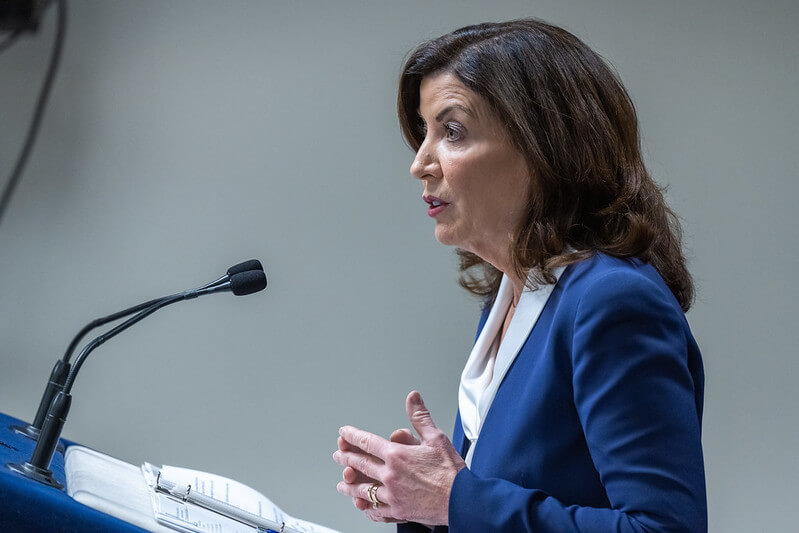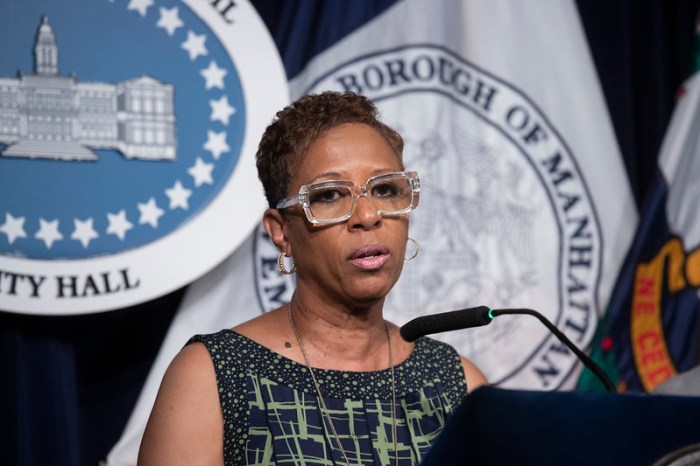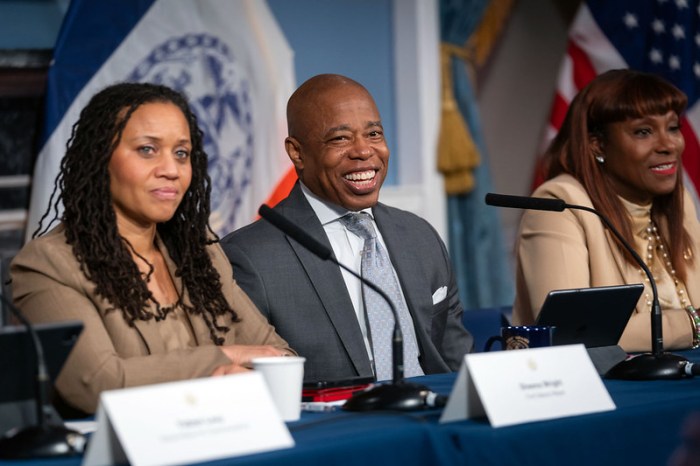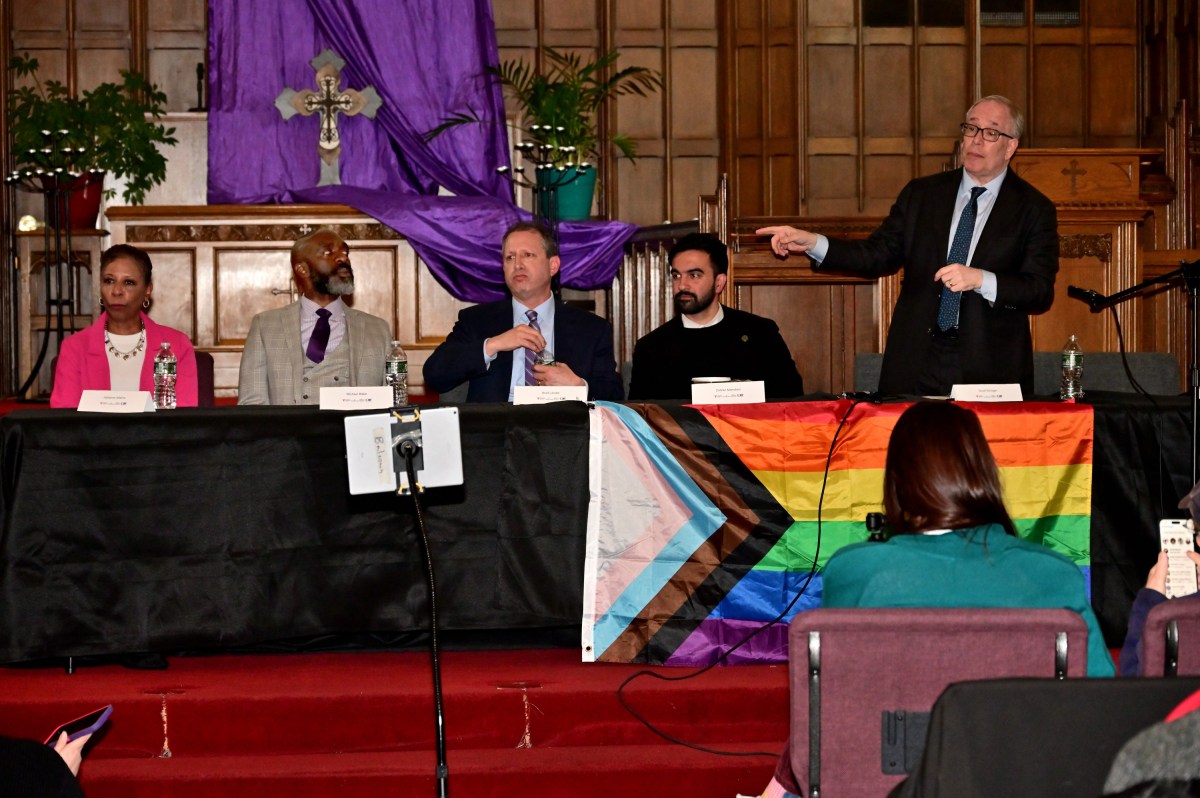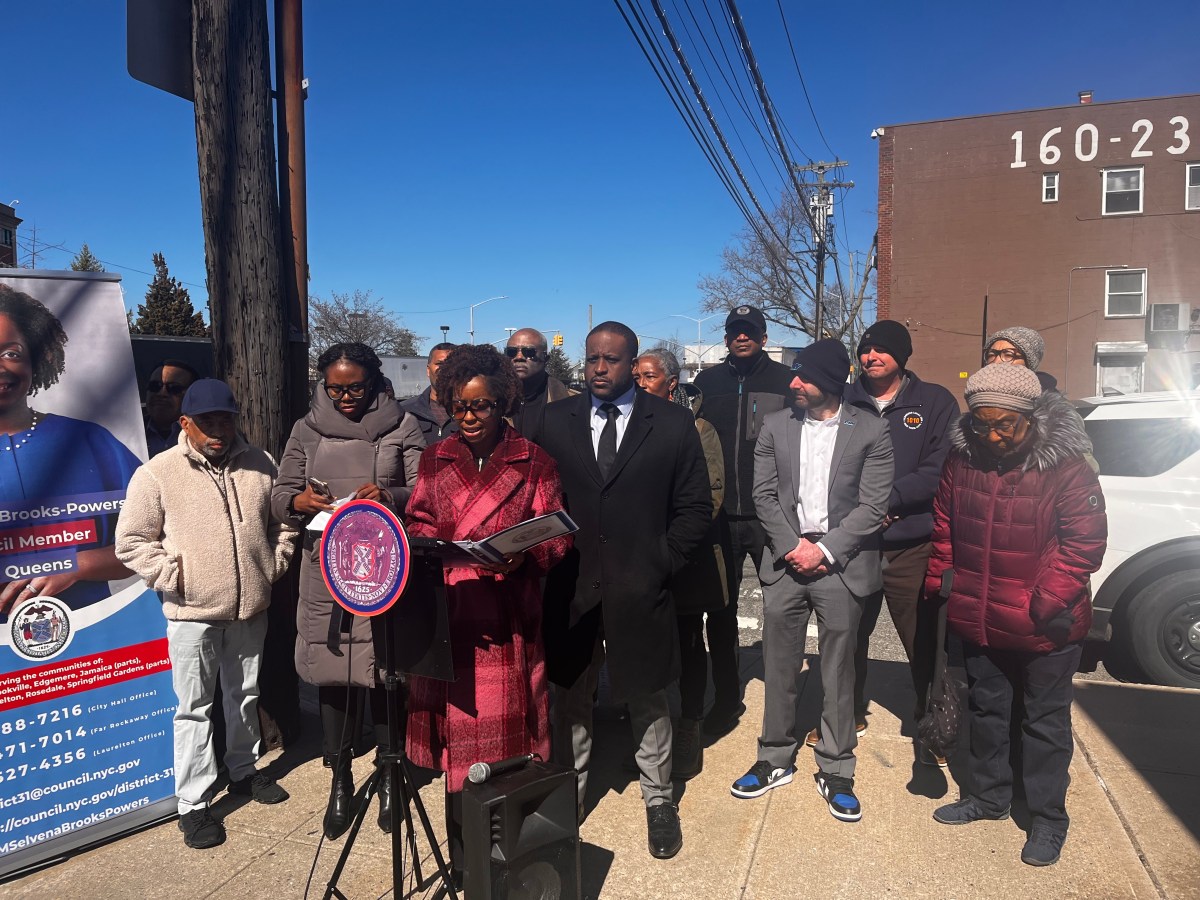Governor Kathy Hochul on Tuesday reiterated her determination to further roll back parts of the 2019 state bail reforms by giving judges more discretion in setting bail for those charged with “serious crimes” and eliminating the so-called “least restrictive standard” judges must consider in determining whether to hold a defendant pretrial.
Following an Albany news conference where Hochul highlighted public safety proposals from her State of the State address, she repeated what’s become one of her main talking points to reporters: she supports the fundamental idea of bail reform — making sure low-level offenders don’t sit in jail pretrial simply because they couldn’t afford bail — but thinks the 2019 reforms went too far.
“The fundamental premise behind bail reform, I have supported, because individuals accused of low-level crimes, petty crimes, should not have to be sitting in Rikers Island for three years awaiting their day in court,” Hochul told reporters. “That is the injustice that the original bail reforms sought to go after.”

“They went very far in sweeping all crimes in that category,” she continued. “What we’re talking about now, which is a thoughtful, common sense approach, is that, in serious crimes, the judge should have more discretion and be able to consider more factors than simply whether or not the individual is likely to return to court when they’re required to. So, we are looking at the factors that judges should consider with respect to serious crimes. I think that’s the proper balance.”
The governor hopes to implement the new changes through this year’s state budget negotiations with lawmakers in the state Senate and Assembly.
Following an unrelated press conference Tuesday afternoon, state Senate Majority Leader Andrea Stewart-Cousins said judges have always been able to set bail for violent crimes — because the reforms only applied to misdemeanors and non-violent felonies. Additionally, she said, any further changes to the law will be based on data, which will be reviewed at a joint hearing between Albany’s two chambers later this month.
“Our bail laws only impacted misdemeanors and non-violent felonies, so bail has always been available for any of the other categories,” Stewart-Cousins said. “I’ve always said, and I think [Assembly Speaker Carl Heastie] said it too, we’ll do things based on data. And to that end, our committees will be having a joint hearing to go over data at the end of January.”
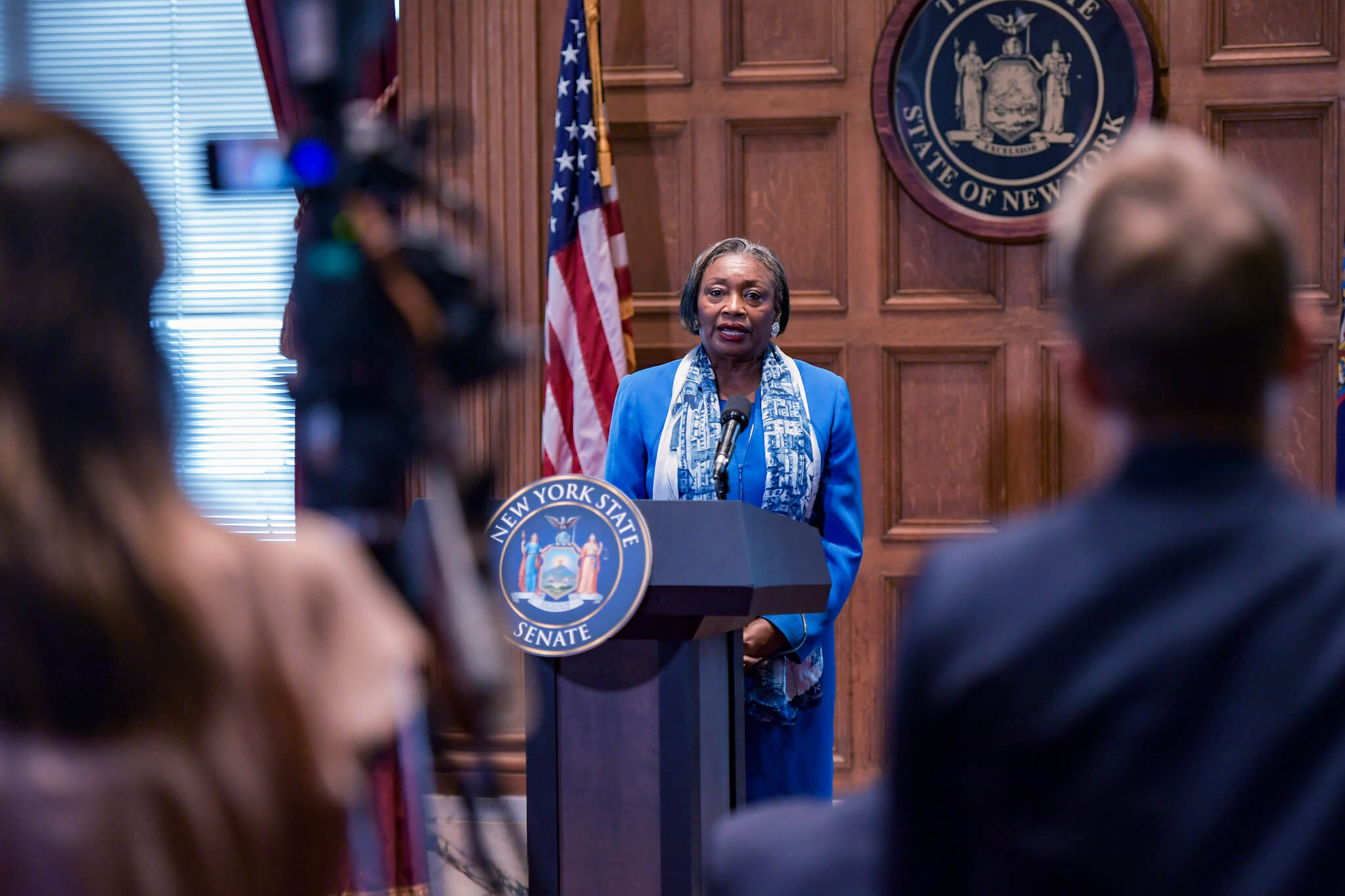
Hochul said the changes she pushed through the state budget process last year, the negotiations for which held up the spending plan’s passage for over a week, were the first step in fixing what she sees as flaws in the 2019 reforms, which eliminated cash bail for most misdemeanors and non-violent felonies. Those changes included giving judges more discretion to set bail in cases involving guns and defendants who are in violation of orders of protection.
Hochul pressed for the rollbacks to bail reform last year, which came after earlier tweaks to the original law in 2020, following Mayor Eric Adams spending his first few months in office lobbying her and Albany lawmakers for the revisions. Adams, however, didn’t think those changes went far enough and spent much of the rest of last year calling on Hochul to allow judges to weigh a defendant’s “dangerousness” when setting bail.
Adams, in a statement to amNewYork Metro, said parts of bail reform should be protected while making “necessary adjustments,” but didn’t speak to Hochul’s specific proposals or whether he’ll continue to push for a dangerousness standard.
“Public safety and justice are the prerequisites to prosperity, and the vast majority of New Yorkers still believe crime is a serious problem that we must tackle right now,” Adams said. “Hard-fought reforms can be protected while we work with our partners in Albany on a holistic public safety approach that makes the necessary adjustments to ensure these reforms are working as intended. I look forward to continuing to work with my colleagues here in New York City and in Albany to get that done.”

When pressed by a reporter for further details, Mayoral Spokesperson Fabien Levy reiterated much of the statement and said the mayor’s office isn’t going to “debate” each of the governor’s policy proposals “through the press.”
The governor again spoke to her desire to nix the least restrictive standard, which requires judges to consider the least restrictive means for getting a defendant to show up in court. According to Hochul, the standard has created “inconsistencies in the law” that makes it unclear what factors judges can consider when setting bail.
For instance, she said, in many cases judges upstate consider the criteria she put in place last year when they determine bail, but judges in other parts of the state don’t, because they feel bound by the least restrictive standard.
“We have an inconsistency in the law right now,” Hochul said. “There are judges upstate who focus on those criteria. Judges in other parts of the state, downstate other judges, they only look at ‘well I’m bound by this, I have to follow this section of the law.’ All I’m trying to do right now is remedy that inconsistency that exists in law.”
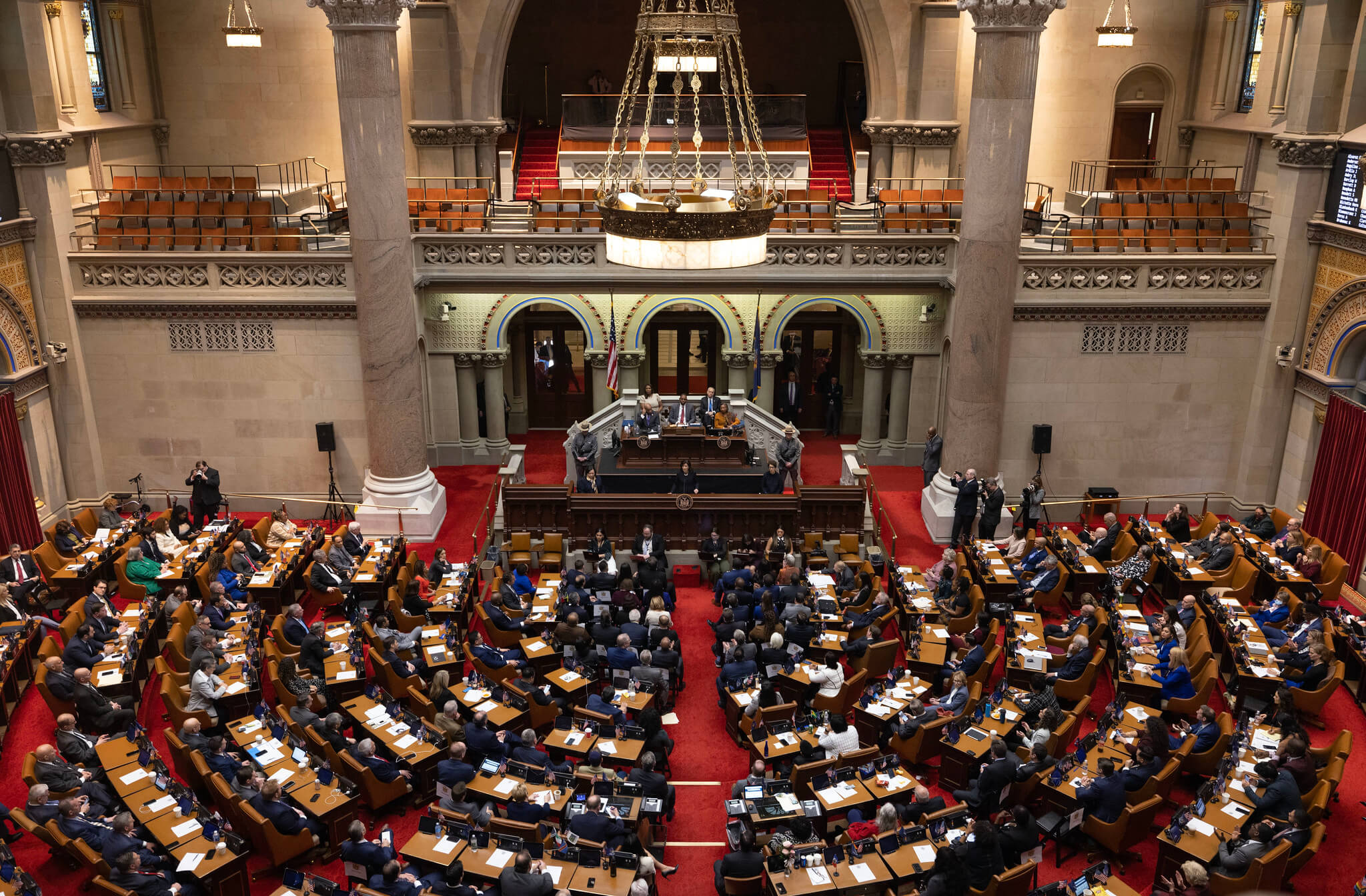
But Katie Schaffer, the director of advocacy and organizing at the Center for Community Alternatives — a criminal justice advocacy group — told amNewYork Metro in a statement that eliminating the least restrictive standard will hold more people who are presumed innocent in jail and that it’s based on constitutional protections that predate New York’s reforms.
“Removing the least restrictive standards will put more people in jail without contributing in any way to our collective public safety,” Schaffer said. “We must remember when we are talking about bail, we are talking about people who are presumed innocent and have not yet been convicted of a crime. The ‘least restrictive’ standard is based on constitutional protections and existed prior to New York’s bail reform legislation.”
Zoë Adel, research and advocacy manager with another criminal justice advocacy group, Envision Freedom Fund, pushed back on Hochul’s claim that judges need more discretion when it comes to serious crimes, saying they already have enough.
“The truth is, even under bail reform, judges have not sacrificed their discretion,” Adel said. “Judges don’t need more discretion; they need more accountability. The Governor would better serve New York State by focusing on solutions that do create safety, such as increasing funds for housing, public health, education, employment opportunities, and meaningful off-ramps from the criminal legal system, instead of trying to push through policies that would funnel more Black and brown people into our state’s deadly jails.”
Read more: NYC Health + Hospitals Offers Updated COVID-19 Boosters



